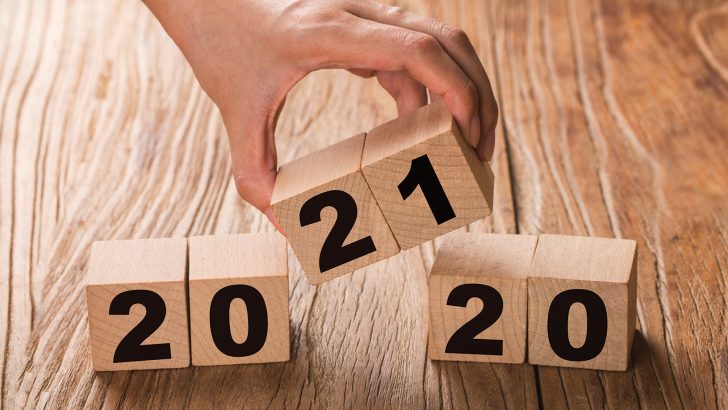The American international magazine Time has designated 2020 as the worst year ever. This, arguably, emblemises the mentality of ‘presentism’ – that is, the notion that what we are experiencing right now is the worst (or the best) ever, without allowing for the perspective of history.
There have been many worse years: we could start with 1847, a peak year for our terrible Famine; or 1942, when the Nazi top command made the decision to exterminate the Jewish population of Europe.
Tragic
2020 has certainly been trying, and for some, tragic. But many people have also found much to be grateful for. We have learned a lot about medical science and epidemiology, as well as about friendship, family, and the meaningful role of religious worship in our lives.
Like many others, I learned how to ‘Zoom’ with family and friends, even though I’m a bit of a techie dunce. This face-to-face communication via the computer screen isn’t the same as being with someone, but it’s a pretty good second best. For teaching, it can even be better. I have a singing lesson every fortnight (because singing helps breathing, although it is also joyful in itself) and the screen close-up of the teacher’s face amplifies the breathing exercises that precede the actual singing.
And in the last weeks of 2020, a vaccine appeared, which is cause for thankfulness.
Positives
We will all look back reflecting on the positives and the negatives of 2020. There have been many negatives, but from trials and difficulties come strength of character. In the lives of the saints, holiness came through testing and even suffering.
Granted, there will be plenty of folk glad to see the back of 2020, and are already wanting to see the end of it. But I always think of my mother’s words, when I’d be counting the days in expectation of the school holidays: “Don’t be wishing your life away.” 2020 was trying, restrictive, sometimes woeful and exasperating, but it was a year of our lives, and personally speaking, I am grateful for it.
Praying for a Brexit deal…
People in Ireland sometimes refer to Britain as “our nearest neighbour”. But in Britain, or at least in England, it is France that they designate as “our nearest neighbour”. Where I presently dwell, in Deal, Kent, we are less than 20 miles from the coast of France: I can see the white cliffs of Calais from the beach.
But, as G.K. Chesterton so wittily remarked, we are enjoined to love our neighbour and to love our enemy – sometimes because they amount to the same thing!
England and France have always been at loggerheads, and the English like to recite the battles they’ve won over the Frenchies – Agincourt, Crécy, Waterloo (although that would have been lost if it hadn’t been for the Prussians arriving at the last moment.)
While in France, they speak of England as “perfide Albion” – “perfidious Albion”.
In recent weeks, over Brexit negotiations, there has been much acrimonious anti-French feeling heard in England. It’s being said if it weren’t for Macron’s Machiavellian machinations, a deal would be done. Ireland, by contrast, is frequently hailed as a fair arbiter of events – Simon Coveney and RTÉ’s Tony Connolly are frequently consulted by BBC radio and TV.
President Macron is concerned for his fish (and his upcoming election). But for Ireland so much more is at stake, for the beef and dairy industry, for medicines, for jobs – and for the North. Deal or no deal? I think everyone prays for a deal.
***
Once again, President Michael D. Higgins has spoken thoughtfully about the centenary commemorations of 1920-22, alluding to “the callous disregard for human life” that was displayed “on too many occasions”.
The British were not alone in committing atrocities, he said, launching the Machnamh 100 centenary commemorations – Irish Republicans also targeted civilians. “War is always ugly, and posthumous glorification is neither desirable nor morally sound,” he said. We should engage with history and commemorations in “an inclusive, ethical, pluralist and honest” way.
Michael D’s own childhood memory is deeply imprinted on his consciousness. His father and uncles fought in the War of Independence, but while his uncles took the pro-Treaty side, his father was an anti-Treaty Republican, sometimes called “an Irregular”. He lost his job, was harassed in his Co. Clare home, and people wouldn’t speak to him after Mass in the parish. One way and another, things went downhill for the Higgins family in the following years.
An Uachtarán is wise, and right, to seek to reconcile, rather than revive, the bitterness that tore many families apart in the centenary we are marking.


 Mary Kenny
Mary Kenny
